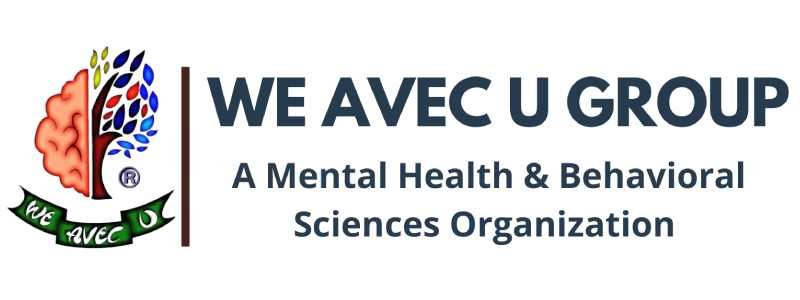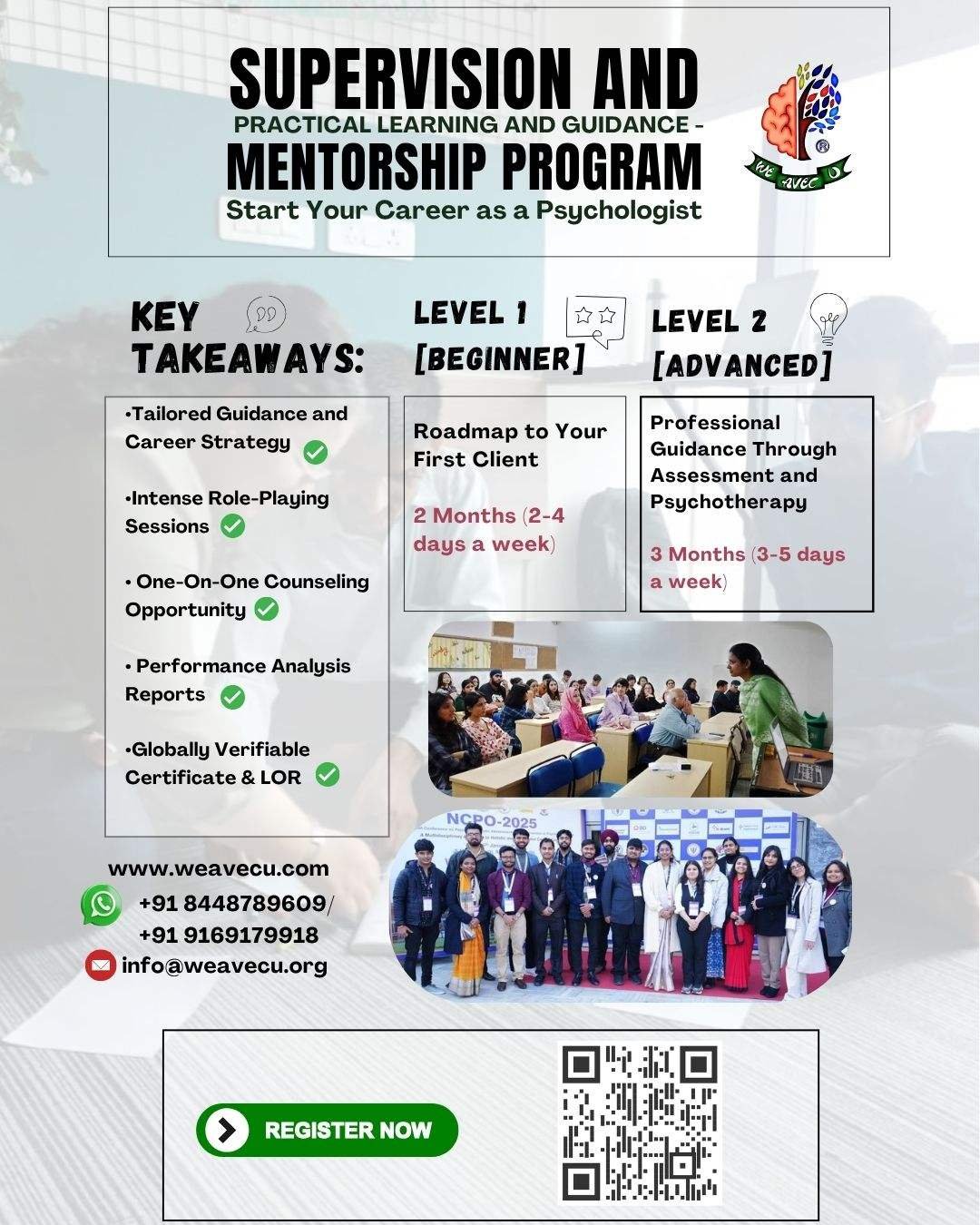Supervision & Mentorship Program
Guided Growth for your Professional Journey
Start your career in psychology under the mentorship of experts. From getting your first client, conducting assessments, and therapy to setting up your own practice.
Building a successful career in psychology requires more than just knowledge and expertise. It also requires the right support and training to ensure that you can navigate the complex challenges of the field. That’s why our program focuses on providing ongoing mentorship and guidance to help you succeed. With our support, you can gain the experience and confidence you need to thrive in your career and make a meaningful impact on the lives of your clients.
More Information About
Duration
Level 1 [Basic] 2 months (2-4 Days a Week)
Level 2 [Advanced] 3 months (3-5 Days a Week)
Starting Batch
Every Month
Eligiblity Criteria
Students pursuing/completed there BA/MA/MSc/PG diploma in Psychology/Mental Health Professionals
Transform Your Practice: Enroll in Our Mentorship Program Today!
Trusted by the students from:









What will I get in this program?
Hands-On Training in Evidence-Based Therapy Techniques
Step-by-Step Guidance in Conducting a Therapy Session
Case Presentations and Diagnosis Formulation
Empathetic and Non-Interrogative Case History Taking Techniques
Creating a Personalized Treatment Plan
Administration and Interpretation of Psychometric Tests
Conducting Counselling Sessions Under Supervision
Mentorship from Experienced Psychologists
Frequently Asked Questions
This programme is designed to guide psychology graduates, interns, and mental health professionals through practical, real-world experiences under the mentorship of experienced psychologists. It combines supervised clinical practice, hands-on training, and ongoing career guidance for those seeking to grow their expertise and confidence as practitioners.
Eligible participants include students pursuing or who have completed their BA/MA/MSc/PG Diploma in Psychology, as well as early-career psychologists, counselors, or mental health professionals looking to develop their skills or launch a private practice.
You will receive:
- Individual and group supervision with expert feedback
- Step-by-step guidance in therapy and assessment techniques
- Mentorship on ethical, practical, and clinical issues
- Training in case presentations, diagnosis, and treatment planning
- Support with building confidence and professional identity
Sessions are typically held multiple times a week, depending on your level (basic or advanced) and schedule. Some programmes offer weekly or biweekly meetings, and additional support may be available via messaging or on a need-basis.
Many supervision and mentorship programmes offer both online and offline options for flexibility. You can join sessions remotely or attend in person based on your location and preference.
- Conduct therapy sessions and assessments ethically and confidently
- Apply evidence-based techniques with real clients
- Navigate professional challenges with expert support
- Build your own practice or advance in your career with a strong foundation in practical skills.
Supervision offers direct, personalized feedback, skill development in real cases, emotional support, and networking with professionals. It enables you to navigate challenging situations, improve your practice, and comply with professional standards in mental health care.
Yes. All discussions, cases, and personal information shared during the supervision or mentorship process are treated as strictly confidential, following ethical guidelines to maintain your privacy and that of your clients.
Supervision focuses on developing specific clinical skills necessary for practice, while mentorship often involves broader career guidance, networking, and personal development. The programme may include both elements to foster holistic growth.
Duration varies by level:
- Level 1 (Basic): Typically 2 months (2–4 days/week)
- Level 2 (Advanced): Typically 3 months (3–5 days/week)
There may be ongoing mentorship and support available even after formal sessions end.
Most structured programmes provide a certificate of completion detailing the skills and competencies gained, which can support career advancement and further studies.

